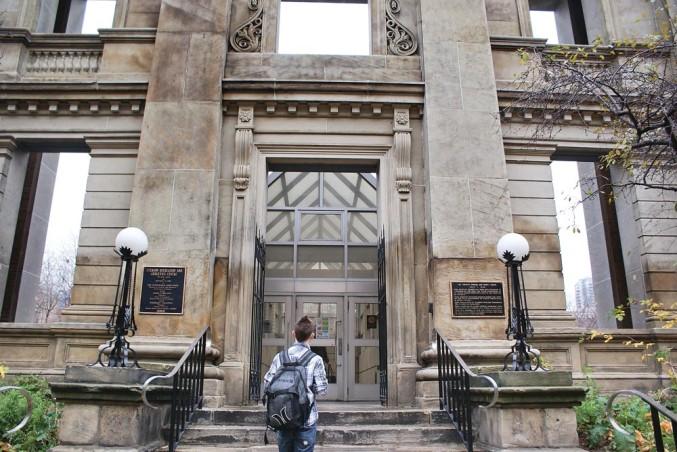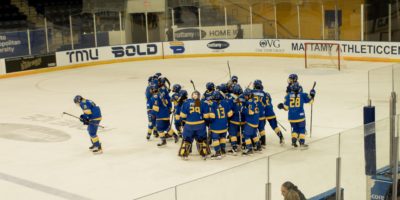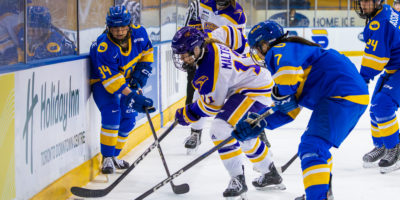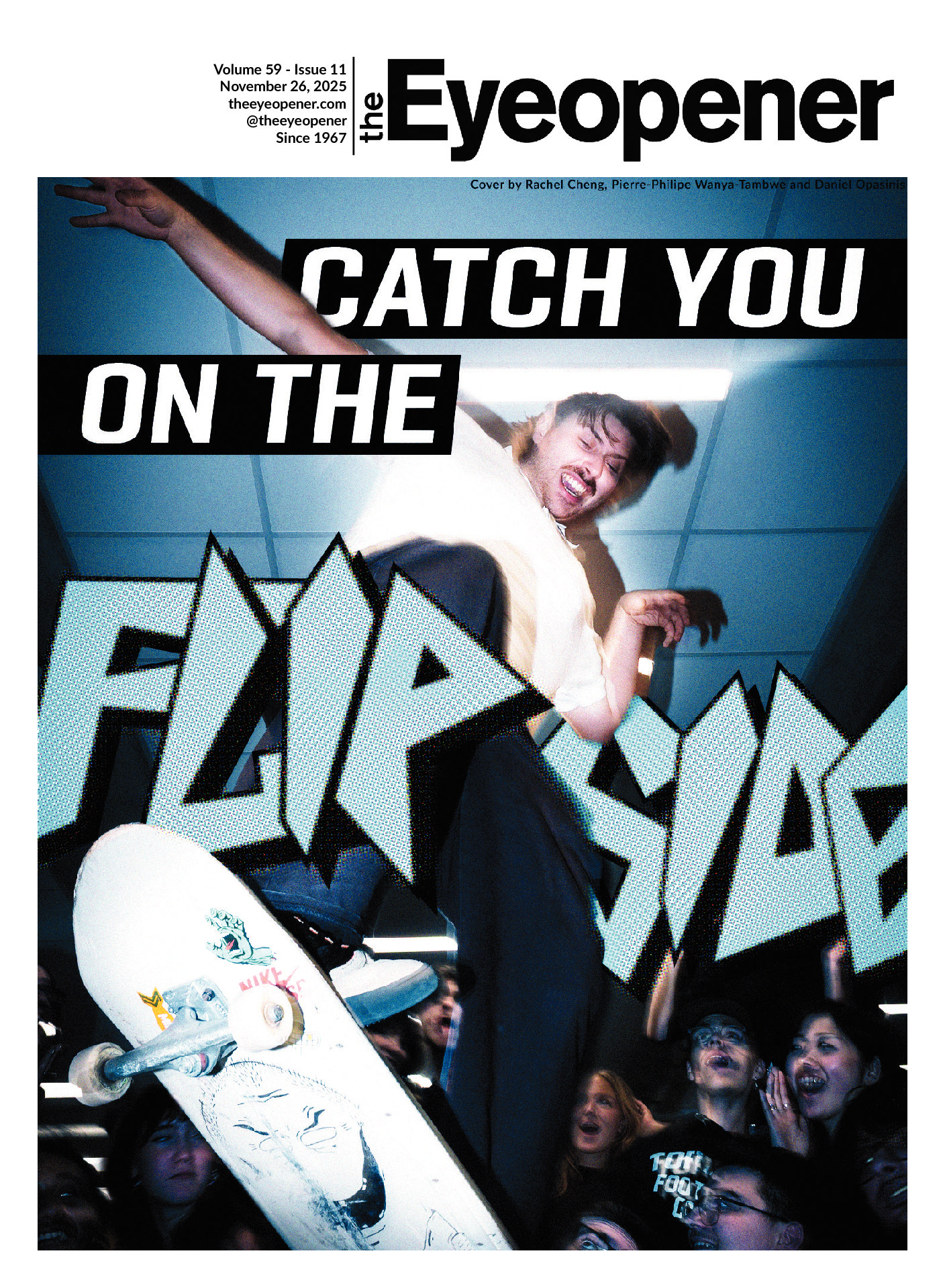Community editor Allyssia Alleyne reports on how Ryerson is stripping some students of their extracurricular identities
Sheila Edwards was to her Kingston high school what Glee’s Rachel Berry is to William McKinley High.
Edwards, a second-year arts and contemporary studies student, was known for her involvement in her school’s theatre department. She starred in every major production and even came back for a fifth year to coach the school’s improv team.
“In high school, it was definitely a huge part of who I was,” said Edwards. “Everyone knew me for it.”
After finishing her victory lap, Edwards decided to study in Toronto because of its thriving theatre scene. Though she wasn’t studying theatre, she never doubted that she’d have the chance to get involved with theatre at Ryerson.
Instead, she was entered an artistic drought. While students studying in the theatre school were given multiple opportunities to perform, Edwards found herself on the outside looking in.
“You’re surrounded by [theatre], but you’re not in it,” she said. “There’s always a reminder: it’s gone now that I’m out of high school.”
Edwards is one of many students at Ryerson who feel as though coming to Ryerson has forced them to abandon a part of their identity.
While York University and the University of Toronto offer about 250 and 200 clubs respectively, Ryerson only offers around 145. York and U of T also offer different performance classes to all students, while Ryerson does not.
According to Corey Scott, Vice President Campus Life at U of T’s St. George campus, extracurricular activities are supported because they teach “the practical skills you won’t learn in a textbook.”
“It teaches you to have a life outside of the profession you’re going into,” said Scott.
But Ryerson’s extracurricular options are limited not only in number, but also in breadth. While there are about 31 clubs in the Ted Rogers School of Management alone, clubs in other areas like the arts and languages are limited.
But Heather Lane Vetere, Ryerson’s Vice Provost Students, does not believe Ryerson suffers from an overall lack of extracurricular activities. Instead, she suggests that students aren’t paying attention to the options available.
“I think that we have as many options [as U of T],” she said.
Chad Nuttall, the manager of Student Housing Services, is in charge of keeping residence students informed about clubs and goings-on around campus.
Each residence has weekly meetings to let students know about what’s happening on campus and how they can get involved, though most opportunities are residence-based.
“When people think about their experience here, they often think of those opportunities,” said Nuttall.
But while she was living on residence during her first year, Edwards never heard about theatre opportunities.
“I felt like they only talked about residence,” said Edwards.
Students who don’t live on residence have an even tougher time finding out about extracurricular activities.
Niki Fereidooni, a first-year graphic communications management student who commutes from Mississauga, never would have heard about Ryerson’s French club had she not received an invitation to one of their events on Facebook.
Having been in the French immersion before university, she was eager to practice and maintain her conversation skills without taking yet another French class.
While living on residence at U of T last year, she was constantly bombarded with flashy posters from their popular French club, which even had banners tacked up in classrooms and high-traffic buildings.
“Student groups [at Ryerson] should put themselves out there and promote themselves,” said Fereidooni. “All I know is that we have a volleyball team, and they have competitions.”
But some students don’t come to Ryerson explicitly seeking extracurricular practice. Some come expecting to practice their interests in the classroom.
Like Edwards, Ana LeSage was heavily involved in her school’s drama department. She directed numerous school productions and was often pulled out of other classes to help with performances.
“I didn’t really do anything else,” said LeSage. “I just put everything into drama.”
Though she now majors in psychology, she started off with an undeclared major, which she thought would allow her to take drama classes before settling into a major. She didn’t know that acting classes were only offered to students in the theatre school.
“Ryerson is pretty career-focused, I guess. They don’t let you out of your realm of study,” said LeSage.
Lane Vetere admits that Ryerson’s arts offerings are lacking compared to other Toronto universities, both scholastically and in terms of extracurriculars.
To remedy this, Lane Vetere and the Vice Provost Academic are working hard to provide a greater breadth of opportunity in the coming years, starting with the introduction of the News Studies and Fashion Studies minors in Fall 2011.
Lane Vetere also points out that Ryerson has much to offer that other universities do not.
“You’re not going to see a Mass Exodus at York,” she said, referring to Ryerson’s annual fashion show.
But the lack of theatre offerings didn’t just rob LeSage of a way to pass the time. It also robbed her of an important part of her identity and affected her outlook on school.
Away from her tight theatre community for the first time since starting high school, LeSage often felt upset and unenthusiastic at Ryerson. She missed the theatre environment, which she had always considered a non-judgemental world that facilitated her journey of self-discovery as a teenager.
“My first year, I felt nothing at Ryerson,” said LeSage. “I either didn’t want to be there or didn’t care.”
It wasn’t until her second year that she discovered the Oakham Amateur Campus Theatre. It wasn’t extensive residence advertising that brought her to the group, though. She found out through word of mouth when a friend in the journalism program asked her to direct a play that he had written.
Since then, LeSage has taken on more power and responsibilities in the group, in hopes that she could help other students looking to pursue drama after high school, no matter what program they’re in.
“I want to let people know [about OACT] because of how excited I was to find it,” said LeSage.
Students who cannot find an existing group to cater to their interests are invited to start their own clubs through the Ryerson Student Union. The school also has a special fund set aside for student initiatives.
Edwards is looking into starting a school-wide improv team in September to bring an element of theatre back into her life. She hopes it will improve her Ryerson experience by giving her something to do between classes and introduce her to new friends.
But for now, Edwards will get her theatre fix vicariously.
This weekend, she’s returning to Kingston to see a play at her high school that she was not involved in for the first time.
“It’s going to be weird,” she said.
Photo: Alyssia Alleyne












Name...
This couldnt be more true. Ryerson really needs to establish an extra curricular theatre program…so many students would be interested in putting on a musical, but the resources to do it are never provided…the school only caters to its pretensious theatre program which puts on shows no one ever sees cause no one cares to see them…this REALLY needs to be addressed more
great article
Name...
…on that note I really feel that this kind of story should be addressed more by all campus papers…it would not be hard to find people to speak about this issue